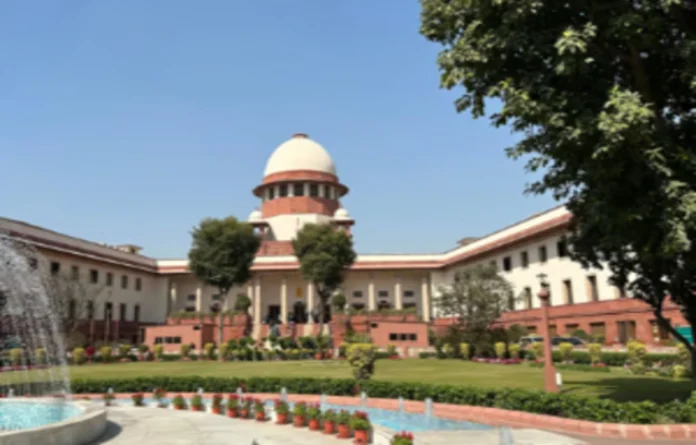The Rajasthan High Court has ruled that an offence under the Scheduled Caste and Scheduled Tribe (Prevention of Atrocities) Act, 1989, can only be established if the insult or intimidation has occurred in a public setting, in presence of others.
Quashing the orders passed by the trial court and the Special Judge, the single-judge Bench of Justice Arun Monga observed that Section 3(1)(x) of the SC/ST Act required that the insult or intimidation be made in the presence of others at a public place.
In the present case, the complainant visited the petitioner at a location that was not a public place. Besides, there was no evidence that the petitioner’s remarks were made in public. Therefore, the offence under Section 3(1)(x) of the SC/ST Act could not be substantiated in the absence of such preliminary evidence, noted the High Court.
The High Court observed that neither the original complaint nor the subsequent investigation supported the claim that the derogatory remarks were made in public.
The FIR itself revealed that the complainant personally visited the petitioner. During this visit, the petitioner allegedly made caste-based remarks in a sarcastic manner. The complainant’s statement recorded by the Investigating Officer did not reveal that the petitioner made such remarks in public, it added.
Justice Monga observed that the trial court order was largely based on the statements recorded under Sections 200 and 202 of Cr.P.C., where witnesses confirmed the complainant’s allegations. However, the witnesses later testified that they were not present at the time of the alleged incident.
Expressing its displeasure over the mechanical manner in which the lower courts had taken cognizance of the case without addressing the negative final report filed by the police, which found no basis for prosecution, the High Court said there was no whisper or discussion of any kind qua the detailed negative Final Report which was filed by the prosecution.
The High Court referred to the principles established in Bhagwan Sahai Khandelwal & Ors. v. State of Rajasthan, noting that a Magistrate was required to discuss the negative final report and provide reasons for disagreeing with it before proceeding.
Taking cognisance of the petitioner was a serious matter, which should have been done after a judicious application of mind to the facts and circumstances of each case, not in a mechanical manner.
Life and personal liberty of a person was of utmost importance, which could not be interfered with without a reasonable cause and a procedure established by law, noted the single-judge Bench.
The High Court observed that taking cognizance against the petitioner, as ordered on June 22, 2013, was an abuse of the legal process.
The High Court delivered the verdict on a complaint lodged by one Prithvi Ram on January 10, 2013, accusing one Chhinder Singh of making derogatory remarks related to his caste.
The matter was placed before the Additional Chief Judicial Magistrate of Sriganganagar, who forwarded it to the police for investigation under Section 156(3) of the Code of Criminal Procedure (Cr.P.C.), leading to the registration of a First Information Report (FIR).
After conducting their investigation, police submitted a negative final report, concluding that there were no grounds for prosecution. In response to the police findings, complainant Prithvi Ram filed a protest petition.
On June 22, 2013, the trial court took cognizance of the offence under Section 3(1)(x) of the SC/ST (Prevention of Atrocities) Act.
Aggrieved with this order, Chhinder Singh filed a revision petition before the Special SC/ST Act Court. On September 23, 2013, the Special Judge upheld the trial court’s decision, leading to the present petition before the High Court.
Appearing for Singh, Advocate R.S. Choudhary contended that the trial court had erred in its decision to take cognizance of the case. He said the police investigation, culminating in a negative final report, did not substantiate the allegations.
The key witnesses had not testified to the presence of the accused at the scene or to any caste-based remarks being made in a public setting, as required by the provision of law. Besides, the complainant had himself denied the presence of witnesses during the alleged incident, added the counsel.
Public Prosecutor Sonu Manawat opposed the petition, contending that the complainant’s testimony provided sufficient grounds for the cognizance order. He argued that the remarks made by the petitioner were abusive and derogatory, thus justifying the charges under the SC/ST Act.


